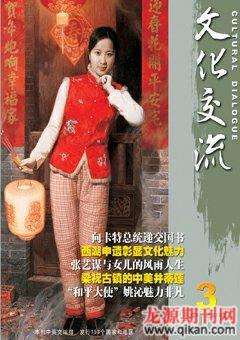The Tea of the Iron Bodhisattva from Southern Fujian
Chen Jingqing

The Tea of the Iron Bodhisattva, or “Tie Guanyin” as the Buddha is known as Guanyin in China, is a tea produced mainly in southern Fujian Province. The name is both a tea species and a brand name for this special variety of oolong tea. Anxi County in Fujian Province is home to this legendary black tea.
Aficionados appreciate the tea for a few reasons. The tea distinguishes itself from other varieties of black tea. It looks darkish, like the color of rusty iron. The tea leaves are thick and heavy in the shape of a spiral. After steeped, the tea soup looks gold. It emits a special aroma; and it has a pleasant flavor which lasts for a long while.
The name suggests its legendary genesis. Anxi County has two legends to suggest its origin.
The first legend points to a tea farmer named Wei Yin in Anxi County. Wei was a pious Buddhist and devoted tea farmer. He poured a cup of tea and offered to Guanyin every morning. One night he had a dream in which he received a tea bush from a god as a gift from Guanyin. Following the clues of his dream the next morning, he was able to find the tea plant in a remote valley, shining in the sunlight. A close look revealed that it was unusual: its oval leaves were thick with tiny teeth on the edge and its buds were purple in color. He transplanted the tea plant to a broken iron wok and cultivated it with greatest care. The tea made from this special tree was excellent in terms of aroma, flavor and shape. One day, a teacher from a private school sipped the tea and was curious where the tea came from. Wei Yin related the story of the godly gift and said he wanted to name the tea Iron Arhat because it looked majestic like an arhat when it was first discovered. The teacher pondered the name for a while and suggested “Iron Guanyin”. So it has been “Iron Guanyin” over the last 300 years and more. Today, the descendents of the Wei family in the county claim the honor as the family which first cultivated Iron Guanyin in the country.
But there is another tale about the origin of the black tea in Anxi County. South Cliff, a village in Anxi County had a local scholar named Wang Shi. In the spring of 1736, Wang found a special tea bush one day in the wilderness. The unique tea bush presented thick reddish serrated leaves which had reddish buds. He transplanted it into his own garden and took care of it. The next year he made tea from the tea leaves and found it very special. In 1741, Wang brought the tea to Fang Wangxi, who in turn presented the special tea to Emperor Qianlong. The emperor liked the tea so much that he summoned Wang Shi to the court and inquired on the tea. Wang mentioned that the tea was found at the foot of Guanyin Rock at South Mountain. Emperor Qianlong named the tea “Iron Guanyin”.
The two stories about the tea coexist in Anxi most peacefully. The local government believes that what matters is not the name or honor but the technique in making the tea.
This tea is something between green tea and black tea. Green tea does not ferment while black tea is totally fermented. Iron Guanyin is semi fermented. The Iron Guanyin tea bushes are most sensitive to mini climates in mountain areas and different terrains result in different aroma and flavor.
The making of the tea requires accurate processing. However, the procedure was developed first in neighboring Zhangzhou, as local histories record that the oolong techniques originated in Zhangzhou. However, tea farmers in Anxi improved and perfected the procedure over centuries. The processing technique now has more than ten steps.
Today, the Tea of the Iron Bodhisattva available on the market is divided into two categories: strong aroma and light aroma. The special grade of the two categories is very rare and very small in quantity.
Iron Guanyin is now made in four seasons. 45-50% of the quantity is made in spring, 25-30% in summer, 15-20% in autumn and 10-15% in winter. The spring tea is the best and the autumn is the next best.
Iron Guanyin is very popular in Fujian. Xiamen, a picturesque city in southern Fujian Province, has more than 3,000 tea shops which sell Iron Guanyin. Prices vary from 4,500 yuan to 30 yuan per 500 grams.
The way the tea is steeped and sipped is an art. That is exactly why the efforts to make a cup of Iron Guanyin tea are called kongfu. A complete tea set consists of 18 things from a teakettle to a tea plate, though most people prefer a simplified way to make a cup of tea and drink it. □

